Joanna Kerns Shares 'Growing Pains' Memories and Going Behind the Camera (EXCLUSIVE)
- Oops!Something went wrong.Please try again later.
- Oops!Something went wrong.Please try again later.
- Oops!Something went wrong.Please try again later.
- Oops!Something went wrong.Please try again later.
- Oops!Something went wrong.Please try again later.
Being on a hit television series doesn't necessarily ensure career longevity or that the audience is going to embrace you outside the confines of that particular show. It's a potential fate that actor Joanna Kerns was certainly aware of.
She starred on the 1985 to 1992 sitcom Growing Pains, and despite its success she had a plan (though whether or not she needed one is up to debate when you consider she starred in 25 TV movies throughout the 1980s and 1990s): shifting from acting to calling the shots as director.
Now you can look at pretty much every hit show and there will undoubtedly be at least one cast member who has had the itch to get behind the camera, but seldom do they continue to do so beyond their own show. That was not a statistic that Joanna Kerns was willing to become, as she discusses below.
She was born Joanna Crussie DeVarona on February 12, 1953 in San Francisco, younger sister to Olympic swimmer Donna de Varona. Her start came as a dancer rather than an actress, majoring in dance at UCLA (she discusses her career path in the interview below) and found early success in television as a guest star in shows like Starsky & Hutch, Charlie's Angels, Quincy, M.E. and Three's Company. She would co-star with Alan Thicke, Kirk Cameron, Tracey Gold and Jeremy Miller on Growing Pains beginning in 1985.
MUST-READ: ‘Growing Pains’ Cast: Find Out What the Stars from This Hit 80s Series Are Doing Today
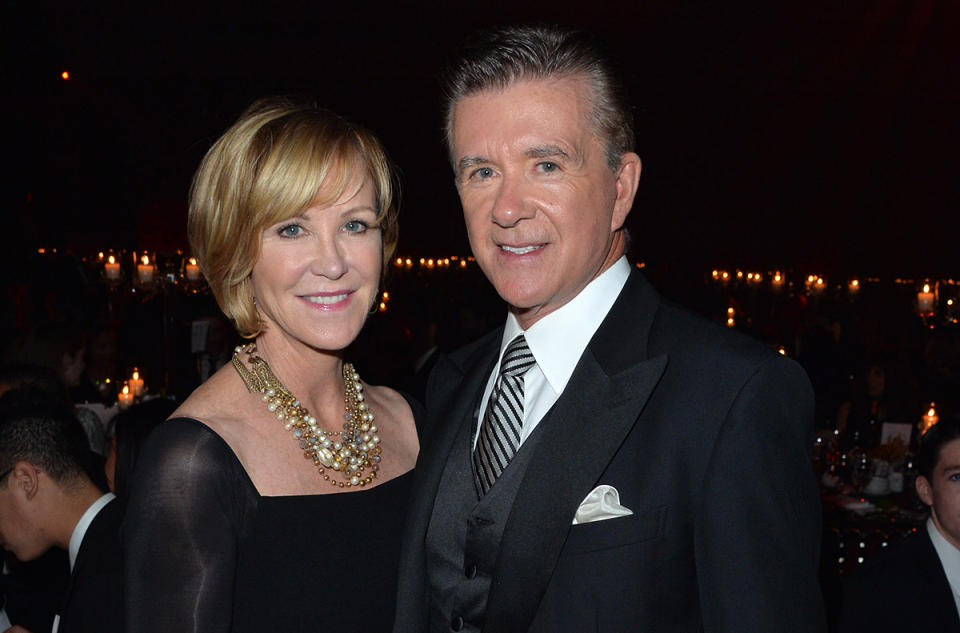
George Pimentel/Getty Images
Joanna Kerns made her directorial debut on Growing Pains in 1988 and hasn't looked back, most recently directing episodes of A Million Little Things and NBC's reboot of Night Court, proving her ability to move back and forth between comedies and dramas.
In the conversation that follows, Joanna Kerns reflects on her remarkable journey, the challenges she faced early on trying to become a director in what was perceived to be a "man's world," and, of course, memories of Growing Pains.
FIRST FOR WOMEN (FFW): On TV shows there are frequently actors who say, “I want to be a director,” and they direct a couple episodes, and maybe they will direct one or two other things, but that ambition kind of fades away. For you, has it been a challenge to be working for all these years as a director? Or is it once you’re in, you’re in?
JOANNA KERNS: Oh, definitely not “once you’re in, you’re in,” especially for a woman. I got my first job directing on Growing Pains, which got me my “card” from the Director’s Guild of America — that meant I was then a director. I directed one episode, at the very end of our run, after years of begging and pleading.
FFW: Can you imagine begging and pleading to do this on the show you’re on? That’s amazing.
JOANNA KERNS: We had one director who did all the episodes produced until the very last season. And the season before he left, we had a big renegotiation of our contracts and I said that in lieu of money, I really want to direct the next few years. And you know, get my feet firmly planted in the directing world.
My producer said yes, and the director said, "Over my dead body." So I had to wait until he was gone the last year and then I had new producers and finally got my episode. But it did what I needed it to do: It got me my card, which allowed other shows to consider me. But at that time, so many of them openly said, “This is an action show. We do not hire women” or “We hired a woman last year and it didn't work out.”
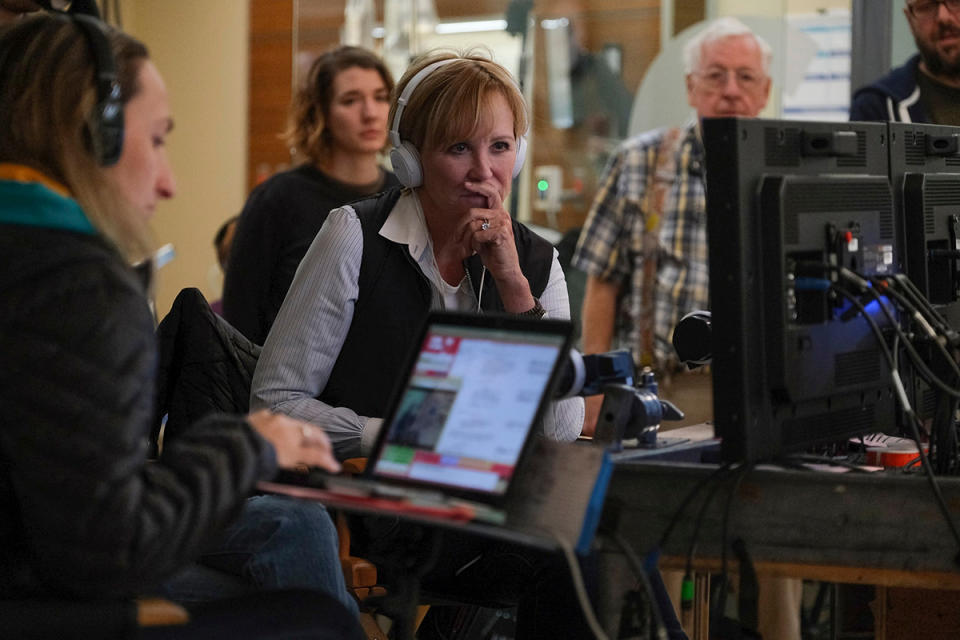
©ABC/courtesy MovieStillsDB.com
FFW: Did the fact you had such a high Q Score [meaning recognizability by the viewers] after Growing Pains help at all?
JOANNA KERNS: Yes, and it was high enough as an actress to say, “Okay, I’ll guest star on your show if you let me direct.” I traded on that for quite a while, and it was really David Kelley hiring me on Ally McBeal that launched me. And at that point, I had to make a choice whether I was going to be acting or directing, because with directors, when a show gets picked up, the first thing producers do is get on the phone to agents and lock down all their directors.
And they usually do it for the first half of the season, and at that time shows were being picked up for 20 episodes, which they are not anymore. I couldn’t commit to a directing job and then say, “Oh, I am so sorry, but I got hired for an acting job.” So I had to make a choice, and I crossed over to full time directing in 1995 or 1996.
FFW: Going back to what you said earlier, why were you met with “over my dead body” when you wanted to direct Growing Pains?
JOANNA KERNS: He did not want to give up the spot or the residuals, and he literally would not let me follow him to learn, which was a lesson for me. I really make a point to have a young woman, an aspiring director, follow me. I introduce her to my producers and to my crew and I let her follow me every step of the way, because I believe the more women there are, the more opportunity there is. And eventually, it will be not how many women have you hired, it will be the best director for the job.
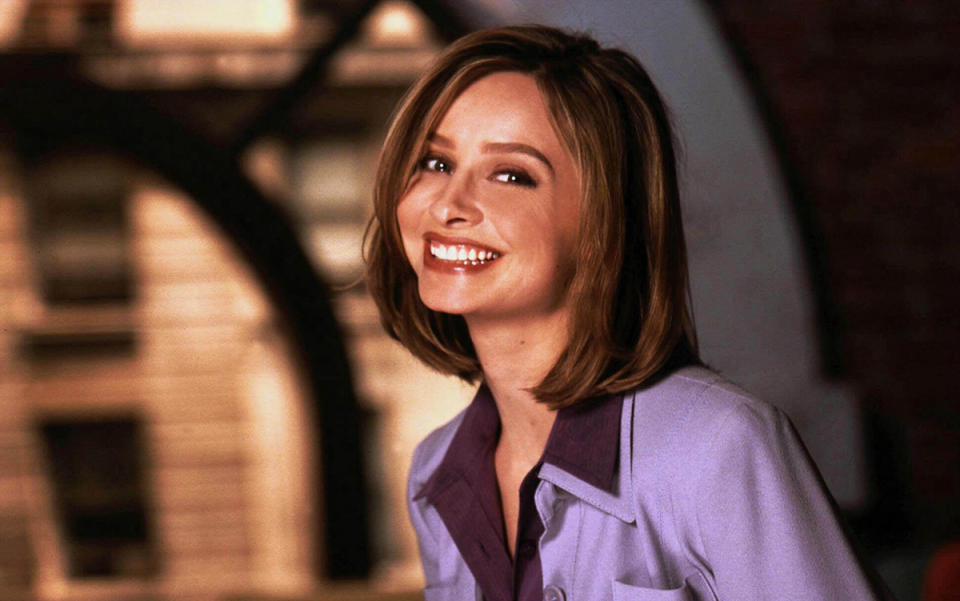
©20th Television/courtesy MovieStillsDB.com
FFW: By doing so, you really are doing your part to correct an inherent problem with the industry.
JOANNA KERNS: You’ve got to pay it forward. Looking back, I think the #MeToo movement helped, because these guys can no longer say, “Well, we don’t hire women.” For the first time in the history of the Guild, more than half of the membership consists of women. So, it’s really been changing, and I’m excited to be around for the change.
FFW: Before we turn to your acting career, what was it that drew you to the idea of directing?
JOANNA KERNS: Since I was a young girl, I’ve loved the movies. I wanted to be Maria in West Side Story; I wanted to be the lead in every movie I saw. So, acting was a dream and a fantasy for me. But as I got into it — and Growing Pains, of course, is a different animal as a four-camera show where you’ve got a live audience — I found myself starting to get interested in what the camera was doing.
In about the third year of Growing Pains, I started getting all of these TV movies and miniseries to star in and really saw the difference in how they were filmed. I started to see that my performance was better with certain directors than others. I started to question what they were doing, what lens was being used, what equipment they were using and where the coverage — the filming of the actors — would be.
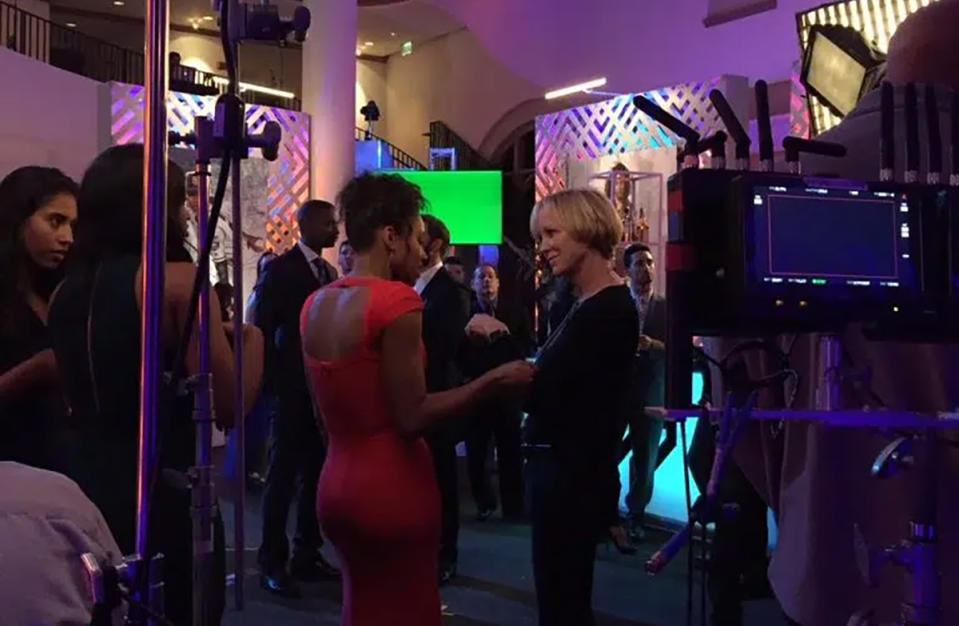
courtesy Joanna Kerns
Then I produced a pilot for HBO and the director said I could direct it, but I cannot be there for editing. Well, I knew enough at the time as an actress to say, “The director really has to have a vision of what the editing is.”
When I direct, I see the whole episode in my head when I'm setting up my shots. So I wound up in the editing room, editing this pilot, and I realized, “Oh my God, there’s all this coverage I wanted that I didn’t get.” The editor said to me, “You should be directing,” and the seed was planted there. I started to follow the directors that I loved and I became a sponge, just trying to learn how to do it.
FFW: Beside soaking up everything from those TV movies and miniseries you did, was the variety in the material you acted in interesting from an acting point of view?
JOANNA KERNS: It was fun to change it up from Maggie Seaver. And I felt it was really important for me to do that if I wanted to have a life after Growing Pains. So, I really mined that world. Some of them were not as well written as others, but it was still always fun to have a new role and a new character and a new set of actors. And at a certain point, I was able to kind of choose the directors I wanted to work with, which was very nice.
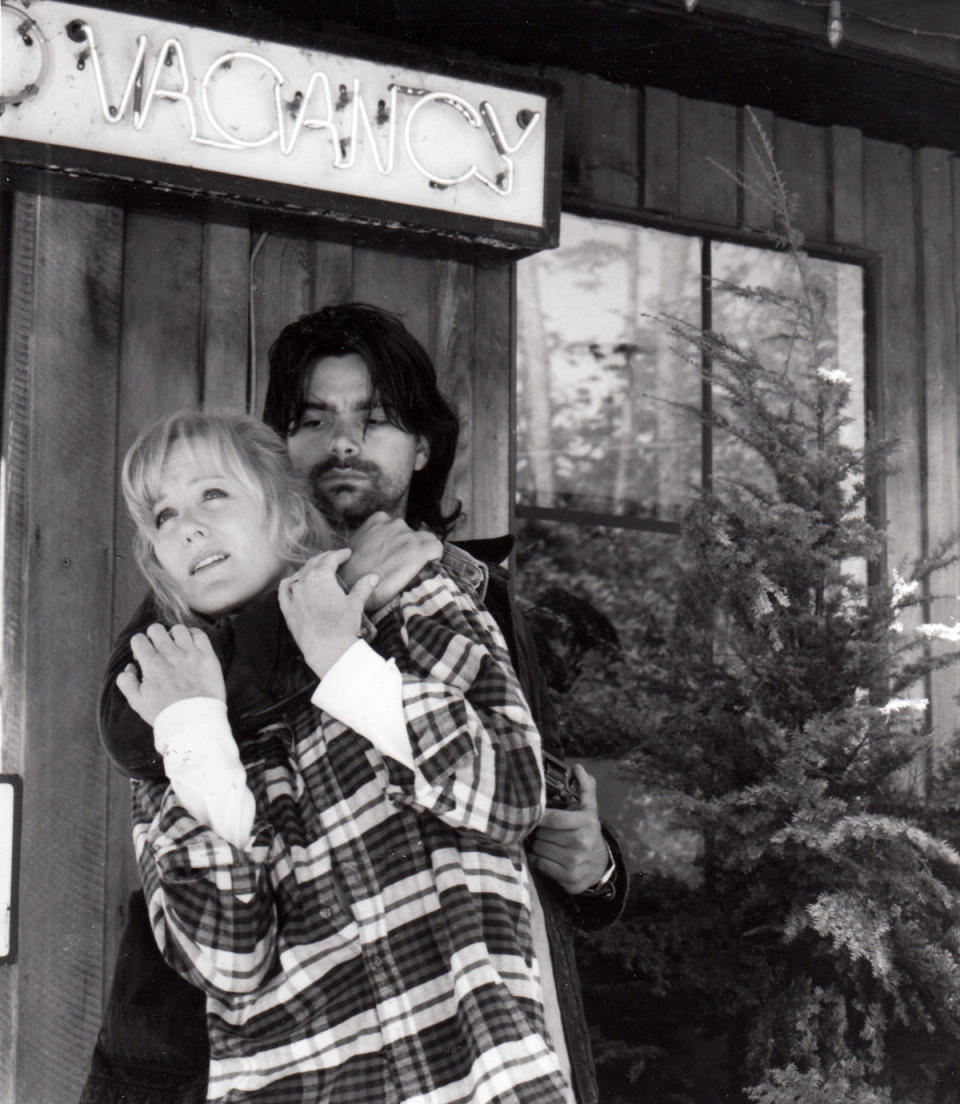
©ABC/courtesy MovieStillsDB.com
FFW: From the 1970s onward there were so many TV movies produced starring the top actresses of their time, people like Barbara Eden and Elizabeth Montgomery leading into movies starring Jaclyn Smith and Cheryl Ladd — it’s just amazing how many were produced starring these actresses.
JOANNA KERNS: Because they knew they could get an audience. I still remember Elizabeth Montgomery doing Lizzie Borden, Farrah Fawcett doing The Burning Bed and Judith Light doing The Ryan White Story. Just really terrific scripts. And the thing that really launched my TV movie career was Blind Faith, based on the book by Joe McGinniss, which I did with Bob Urich, bless his soul.
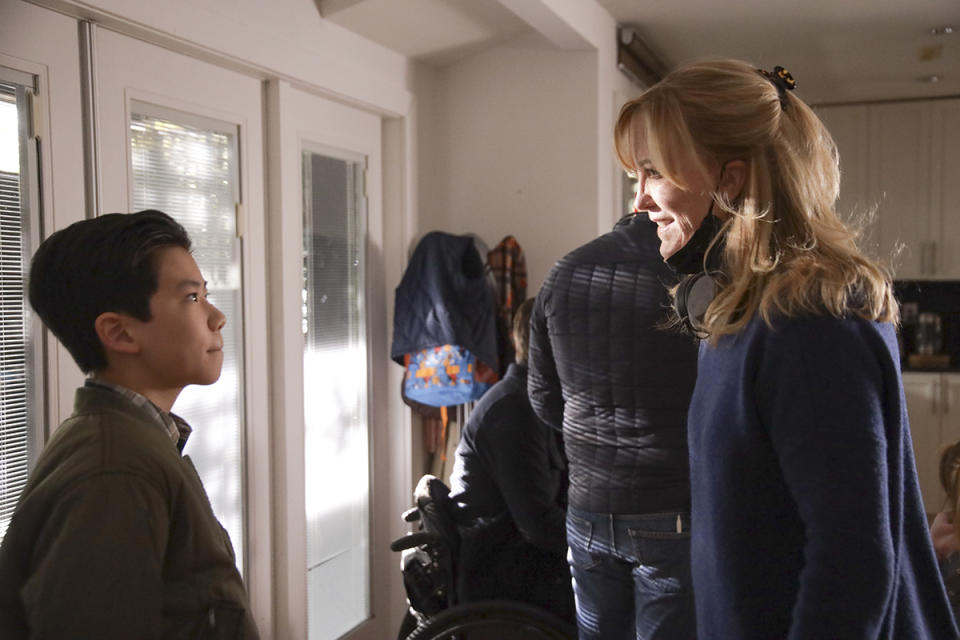
©ABC/courtesy MovieStillsDB.com
FFW: So what drew you to the idea of acting, because you seemed to have had a keen interest in dancing?
JOANNA KERNS: My family was not in the business at all. We were a Santa Clara, California sports family. My sister was an Olympian Swimmer, and my parents thought I was smoking something that I wanted to get into acting. I went to UCLA and tried to get into the film school, and, of course, I didn’t have the credentials to do that.
And every kid in L.A., whose parent was in the business, went to school and had those things or was doing theatre or making little films. But since I couldn’t get into film school, I thought if I got into the fine arts school, I could transfer or do something between the disciplines. So I got into the dance department at UCLA and soon learned that I couldn’t do anything with the theatre or film departments. I could act in something if they cast me, but they were casting actors from their departments.
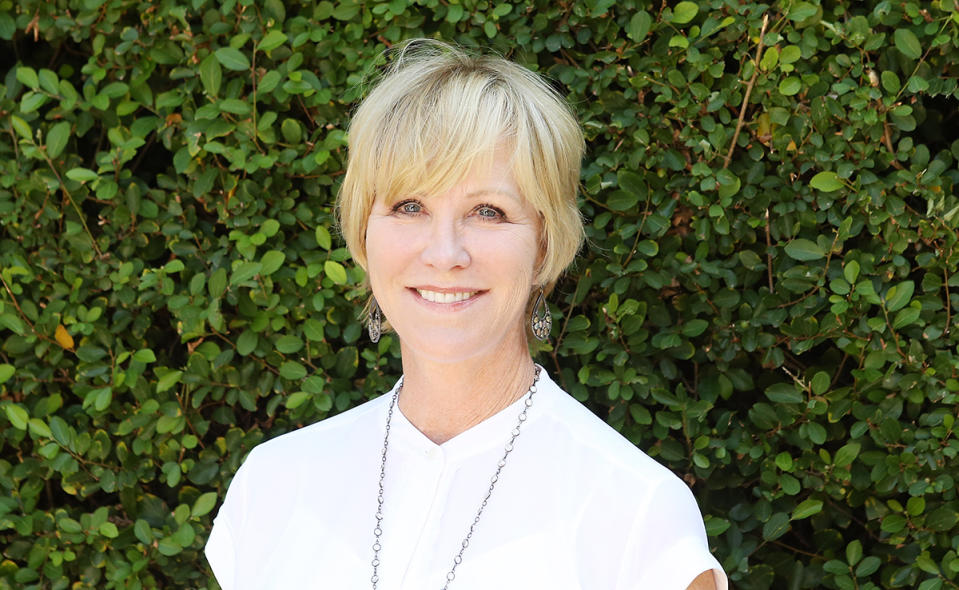
Michael Tran/FilmMagic
I remember coming out of a dance lab one day and on the bulletin board — and this is where destiny or fate comes in — and there was an audition slip for a Gene Kelly musical. I must have seen every Gene Kelly ever made over and over again, because they always played on TV.
I was a freshman at UCLA, but I sent him a letter, my grades and my high school graduation picture. What he wanted were dancers that tumbled, and I had spent my whole childhood and high school years competing in gymnastics and I studied dance all that time as well. And he was going around the country hiring young talent, because the show was supposed to be his answer to Disney on Parade.
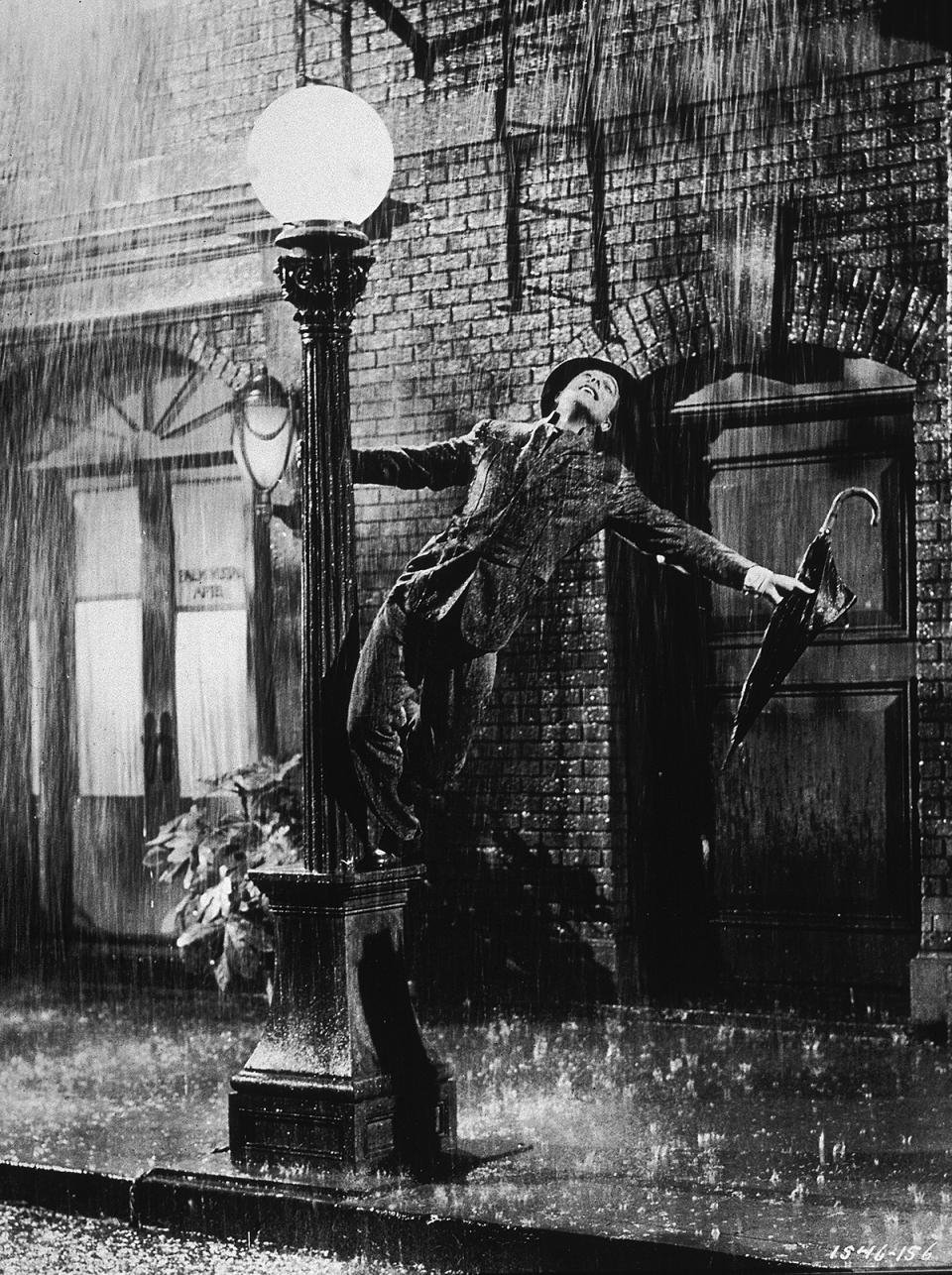
MGM Studios/Hulton Archive/Getty Images
FFW: The assumption is he got in touch?
JOANNA KERNS: This was in the day of answering services, and I got a call saying, “Mr. Kelly would like you to come in and audition.” I did and I got the job! I dropped out of college to go on the road with Gene Kelly — and then the show closed three months after it opened and I was out of a job, out of school and my parents went crazy.
But I got a job dancing in another show, and was in the chorus of Two Gentlemen from Verona. Through that, Joe Papp brought me on to the New York Shakespeare Festival and I was in the first national company of that. One thing I realized in that show was that I was not a good singer. I was a great dancer, not a good singer [laughs], so I knew there was not a future for me in musical theater. So, I really started to study acting.
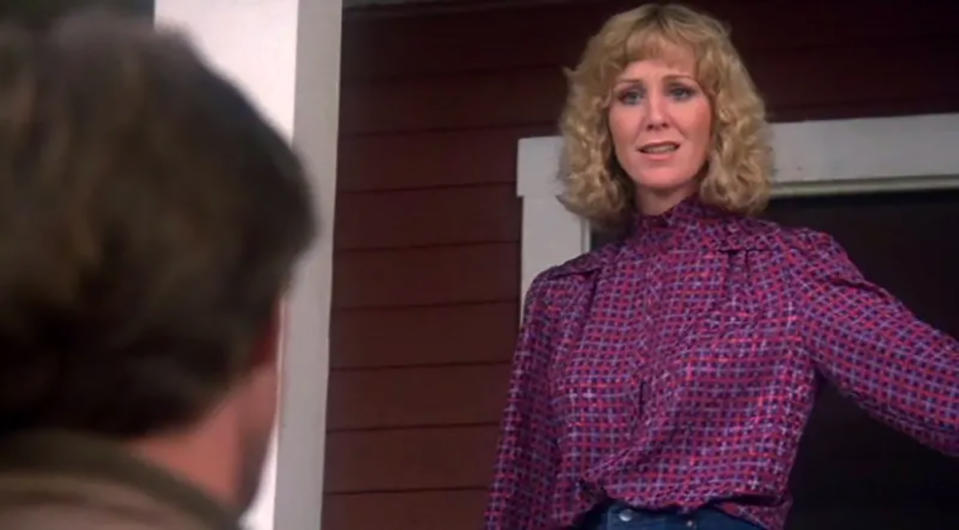
©WBDiscovery/IMDb
FFW: How long before you started turning that into acting jobs?
JOANNA KERNS: I tested for three or four series every season for a good five to seven years, before Alan Alda cast me on the TV version of the movie The Four Seasons in the Bess Armstrong role.
That was only 13 episodes, and the following year I did two pilots, one of which was Growing Pains, which I thought would never go. The other one was a drama where I was, like fifth banana, but I got Growing Pains and the rest is history.
FFW: All these years later, what do you think of when you hear the name Growing Pains?
JOANNA KERNS: For me, it was a lifesaver. I was a newly single mom and it was the show that really changed my life. I think about the actresses that I tested with and all of them were good, so I just feel lucky to have been in the place and time I was, and to have the experience that I did.
A lot of young actors want to act and think they want to be famous — and, yes, some people walk in the door and can do it, but do they have what it takes to sustain it? More often than not, that’s not the case. It’s a long road to a place where you have the craft to carry it off. And the emotional maturity to handle it all. That’s a big part of it.
FFW: Suddenly you’re being interviewed on TV and appearing in magazines, and if you’re not ready for that, it can be a little overwhelming.
JOANNA KERNS: It can be a mess. I credit Alan Thicke, because he was a writer and producer in Canada before he ever got Growing Pains. He was the Johnny Carson of Canada! I learned a lot from him, because he understood both sides of it.
And it was great to have a costar who understood all of that. He said, “You never complain at the bottom, you complain at the top. And you do it behind a closed door.” I think that helped me cultivate the relationships that allowed me to transition into directing, because they knew I was actually an adult.
FFW: What was fascinating about Growing Pains was the instant connection that you and Alan Thicke seemed to have; you absolutely believed this was a married couple.
JOANNA KERNS: Oh, there was. First of all, Alan was a very charming, funny smart guy. And he was really good at making fun of himself, which was disarming. And he was really good at making fun of you, too.
I can remember coming home and still laughing at the end of a show day about the things he would say to me about me, and I loved him for it. Funny will get me every time, and it wasn’t mean-funny, it was funny-funny. And he was a quirky guy — the cheapest man on the planet.
The writers wrote it into his character, but he would order lunch every day and order two, because he took one home at night. I mean, here he is making all this money … And we would get swag on the show and suddenly you’re getting it as a birthday present from him.
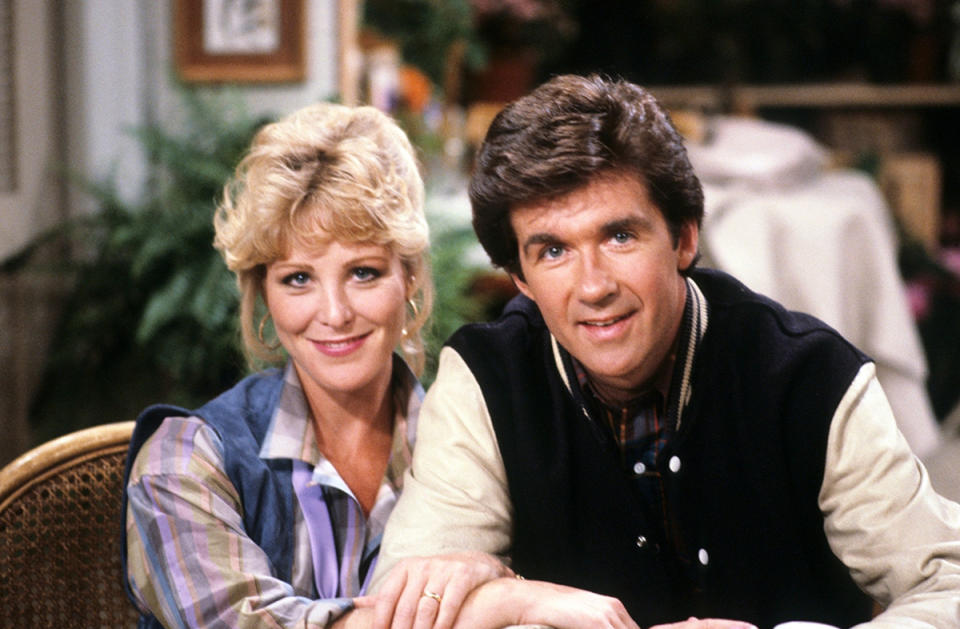
©WBDiscovery/courtesy MovieStillsDB.com
FFW: What was his excuse?
JOANNA KERNS: He would just smile and shrug. Honestly, we were really great friends and I miss him. I saw him just a few weeks before he passed on, on the golf course. We would golf together every once in a while and share stories. I tried to hire him for shows I was directing a few times, but he was always opening a supermarket somewhere. This guy would do anything you asked him to do.
FFW: When Growing Pains debuted, the critics across the board dismissed it as a rip-off of The Cosby Show, but there was so much more to it than that.
JOANNA KERNS: I’m sorry, but a show doesn’t last as long as Growing Pains did if there was nothing there. We never got respect, but we did get viewers. It’s still being shown.
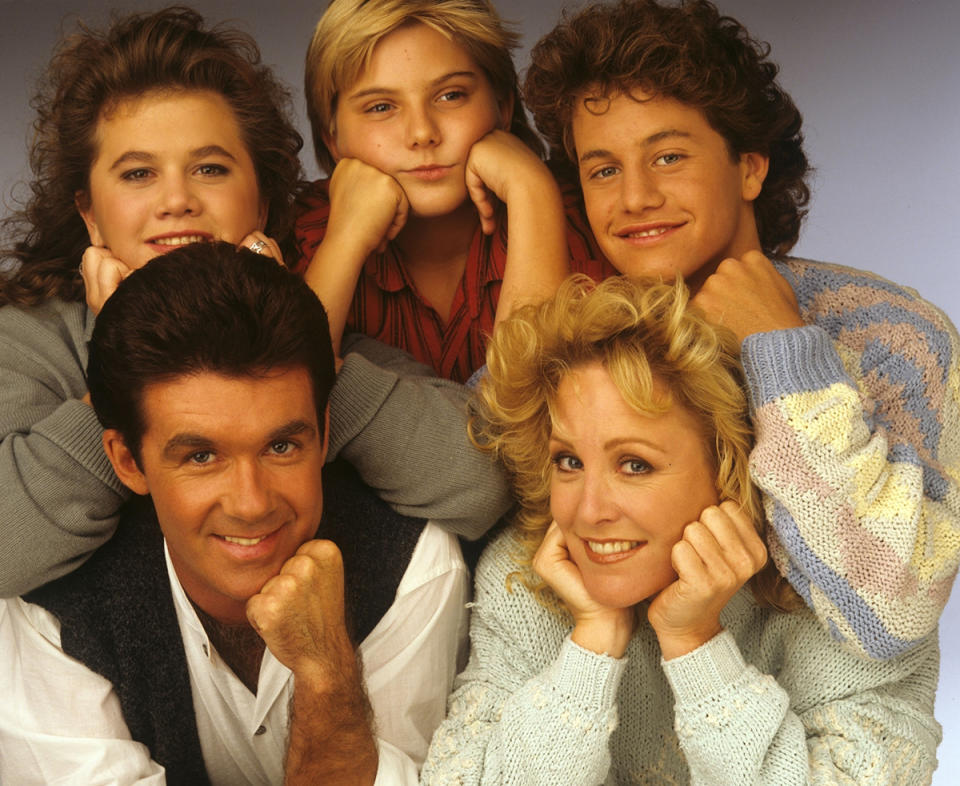
©WBDiscovery/courtesy MovieStillsDB.com
FFW: How did your relationship with your young co-stars evolve?
JOANNA KERNS: We were all pretty close. Jeremy was a baby — he was seven or eight when we started and he grew up on the show. Tracey had her issues, but it’s almost impossible to be a child star and not be scarred from it; to grow up so publicly and go through all those awkward stages.
And we all know what happened with Kirk, his religion and the issues that caused with the cast. Kirk is a pretty black and white guy and I think when he first found his faith, he did not approve of our lifestyles or our jokes. The kid that was so relaxed and laid back, became very judgmental. He has since apologized for that, but he is still clearly having a belief system that does align with many of us. Certainly not me.
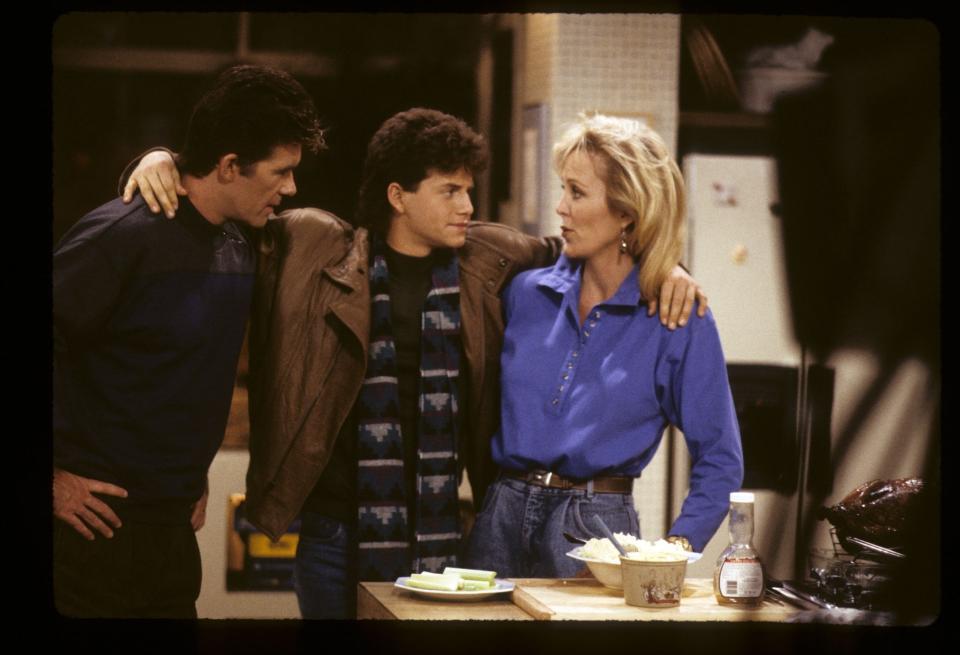
FFW: You’d think that would be difficult for the adults who were sort of the guiding force of the show.
JOANNA KERNS: We challenged him. He did not want to kiss a girl that wasn’t his wife, and then his wife came on the show and you can only write so many characters in a week, so it became a bone of contention for us, because we lost the humor.
And Alan said to him, “If you want a show that’s Christian-based, do The Pat Boone Show. Do The Kirk Cameron Show. That’s not this show.” It’s the reason they brought Leonardo DiCaprio, because the whole premise of the show was about this family, with this son who was walking the line of falling into trouble and out of it, and not a great student. It was something we hadn’t really seen before.
We had real smart kids, but he was on the edge of making big life mistakes, and then, through the love of his family, he made a better choice. And if Kirk wouldn’t play that part, then what do you have? We would have loved to do Growing Pains longer, but it died. We had our writer/producers leave because of it.
I really do think it’s like church and state — you’ve got to keep them separate. You’re saying you don’t believe in what the show is saying, but it couldn’t be any cleaner than Growing Pains. I mean, what’s out there today that you can watch with your kids?
FFW: And in that last season, you could feel the show kind of imploding creatively and see the resulting ratings drop.
JOANNA KERNS: It was really hard that last year, and as an actor what’s interesting is that you’re being paid more than you were ever paid — every year the pay goes up a little bit — so that was sad. And you know when it’s not working, because you feel it from the audience.
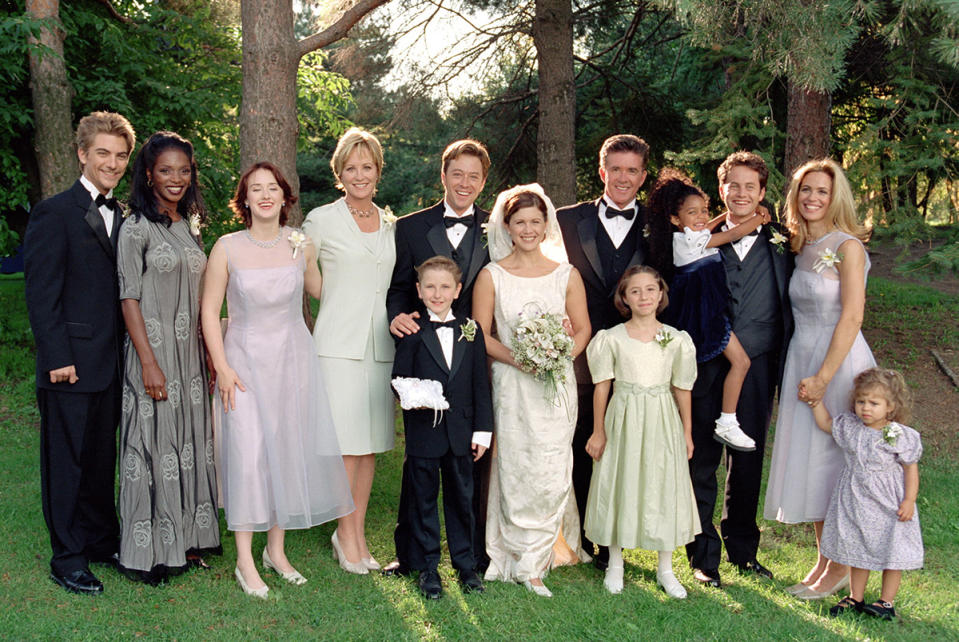
©WBDiscovery/courtesy MovieStillsDB.com
FFW: There were a pair of reunion movies.
JOANNA KERNS: Yes, and I directed the second one. Everyone was great; they all showed up. We had not seen each other in a long time and Tracey was pregnant — she’s had, like, four kids — and it was fun to be there with Alan. We shot in New Orleans right before Katrina during Mardi Gras.
It was a crazy time, but nice to get back together. And on the first movie, Kirk made amends to all of us. He said, “Look, I was 18 and I’m sorry I handled things the way I did.” We all accept it, because we love him. I do not agree with his politics, but I can love somebody and not agree with their politics.
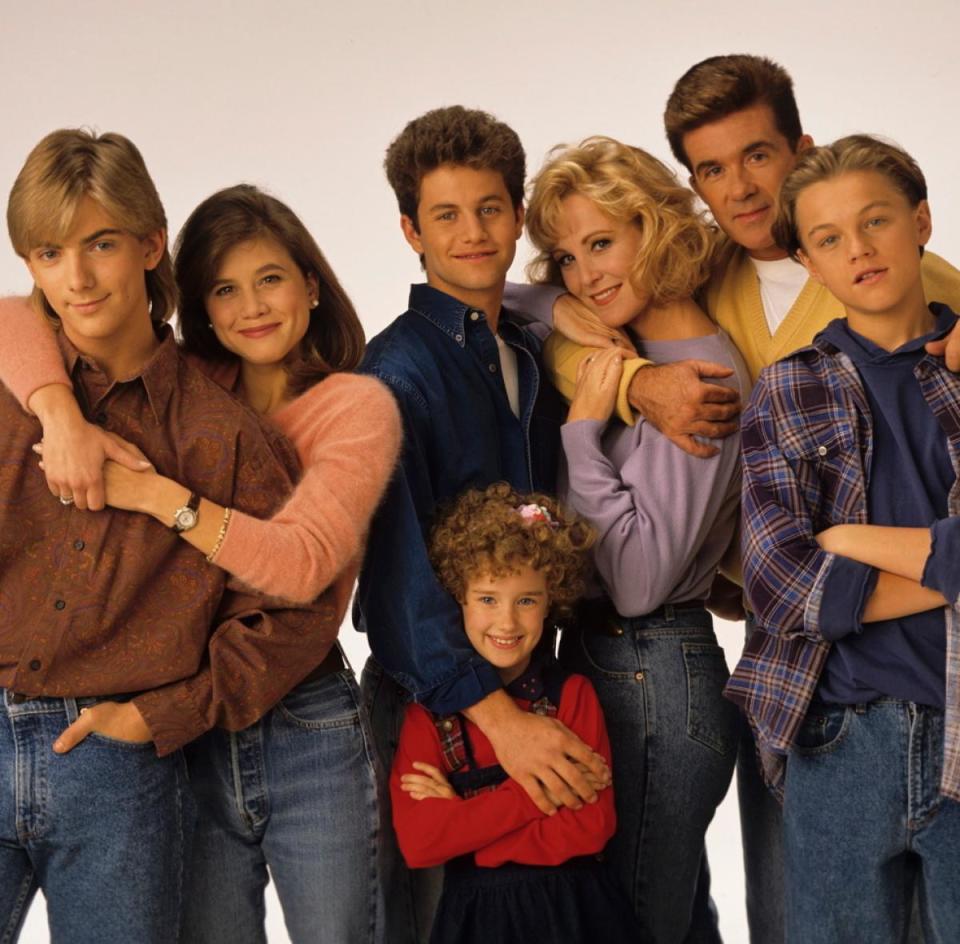
©WBDiscovery/courtesy MovieStillsDB.com
FFW: You said something about destiny, and it really is fascinating to look back at the different moments in our lives that have impacted others to bring us where we are.
JOANNA KERNS: I think back to being the girl in high school who would dress up and see movies over and over, like The King and I. I loved watching old Gene Kelly movies and to think that I would get get to meet him and work with him, or have dinner in his house. Things that I just thought happen to other people, happened to me.
Enjoy more entertainment excursions to the 1980s check out these stories
'Remington Steele' Cast — See the Beloved 80s Investigators Then and Now
Michael J. Fox Movies: The Celebrated Star's 10 Most Iconic Roles, Ranked

